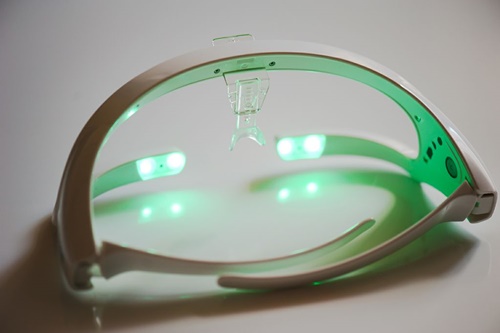25 June 2015. Special eyeglasses that adjust circadian rhythms of people with sleep disorders are being tested as a treatment for lung cancer patients with chronic insomnia. The study, led by University at Buffalo (New York) nursing professor Grace Dean, is funded by a $25,000 grant from Oncology Nursing Society.
Insomnia is a common problem among people with cancer, with estimates running as high as 50 to 80 percent for individuals with lung cancer. Dean studies the problem of insomnia in the lung cancer population, which she and colleagues documented earlier this year in a paper published in the journal Cancer Nursing.
The researchers note that cancer patients face challenges such as anxiety from living with cancer and effects of chemotherapy treatments that interrupt sleep. In the paper, the researchers identify some of sleep disorders experienced by lung cancer patients, including difficulty falling and staying asleep — before and during chemotherapy treatment — which they related to an overall lower quality of life.
In the new study, Dean and colleagues plan to test a solution to the problem, a device resembling eyeglasses that shine ultraviolet-free green light into the eyes of wearers, to adjust their circadian rhythms, the physical, mental and behavioral changes that follow a roughly 24-hour cycle. Circadian rhythms respond to light and darkness in the environment.
The device, called the Re-Timer, is made by Australian company Re-Time Pty Ltd. The Re-Timer is designed to help people with insomnia, as well as others with trouble sleeping such as frequent travelers with jet lag and shift workers, gain a more normal sleep pattern. The green light triggers neurotransmitters in the brain encouraging wakefulness, while shutting off other signals encouraging sleep, helping wearers reset their circadian rhythms, and thus better recognize when to be awake and when to sleep.
In their pilot study, Dean and colleagues will ask a sample of people with lung cancer to wear the Re-Timer in the mornings for one hour a day. Participants will wear sensors on their wrists that record amount of sleep and periods of being awake at night. The Re-Timer works with the popular Fitbit activity tracker that monitors sleep as well as exercise.
Dean says a healthy amount of sleep is 7 to 8 hours a night, at 85 percent efficiency, defined as amount of time sleeping, divided by amount of time in bed. She adds that an electronic device like the Re-Timer may be a better solution for people with cancer than sleep medications, which have side effects that could interfere with cancer treatments.
Read more:
- Study Urges Better Heart Implant Device Tracking
- Phillips, MIT Form Health Technology Collaboration
- Uninsured Patients Paying Far More for Cancer Drugs
- Mobile App in Development to Manage COPD
- Registry to Track Psoriasis Drug Safety
* * *


 RSS - Posts
RSS - Posts
You must be logged in to post a comment.